Haul The Right Reasons
How to choose a trailer that meets your needs
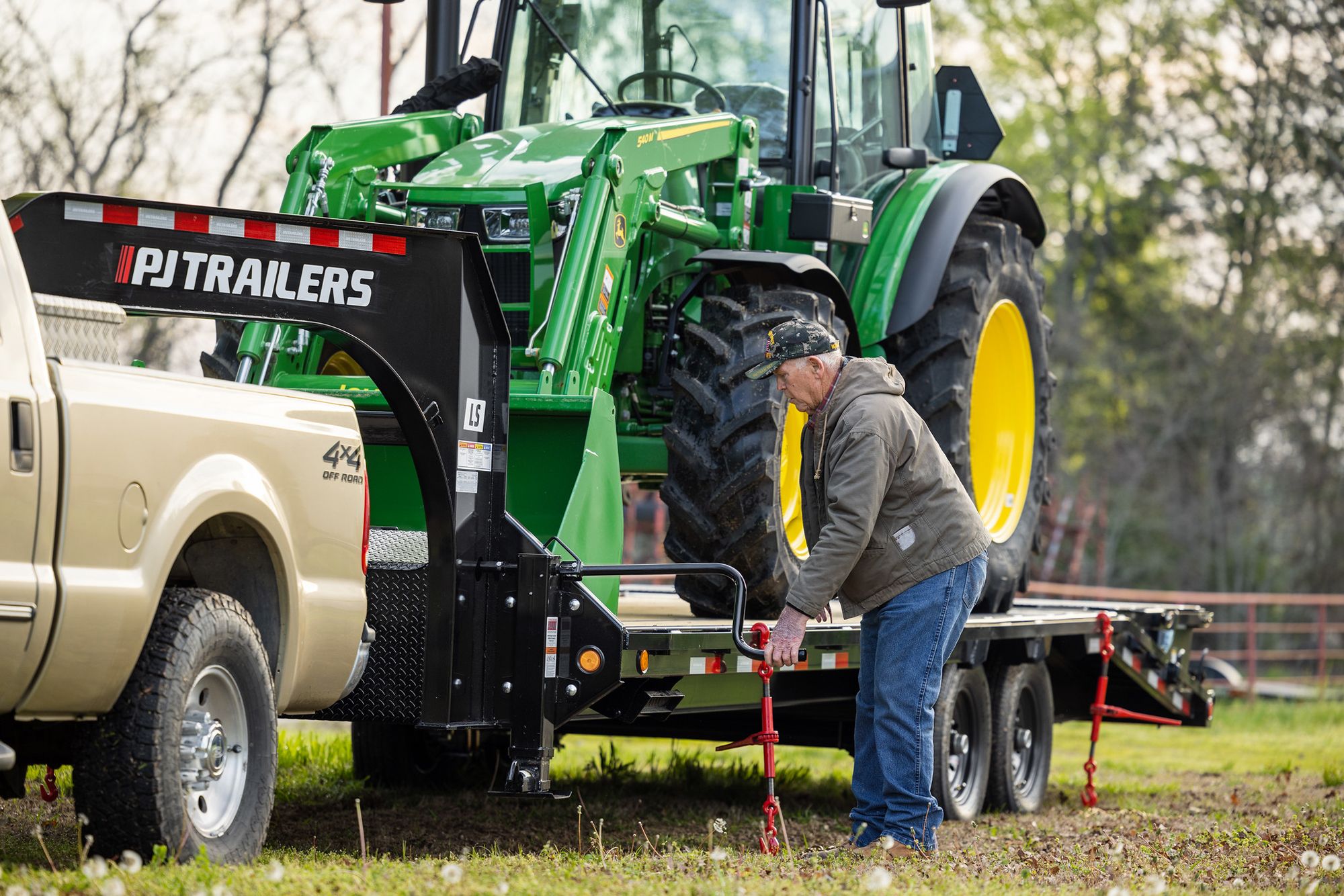

Whether you’re faced with a daily task or a once-a-year effort, half the battle is having the right equipment for the job. (And, no, the answer isn’t always “more power!”) For example, when looking for a trailer to haul everything from equipment to mulch to vehicles, it’s about finding the trailer that’s going to help you get the job done safely and effectively.
There are dozens of styles and features that come with a trailer, so you can really dial in the exact trailer for what you need. Fancy “bells and whistles” are nice, but you need to start with basic answers to a few questions.
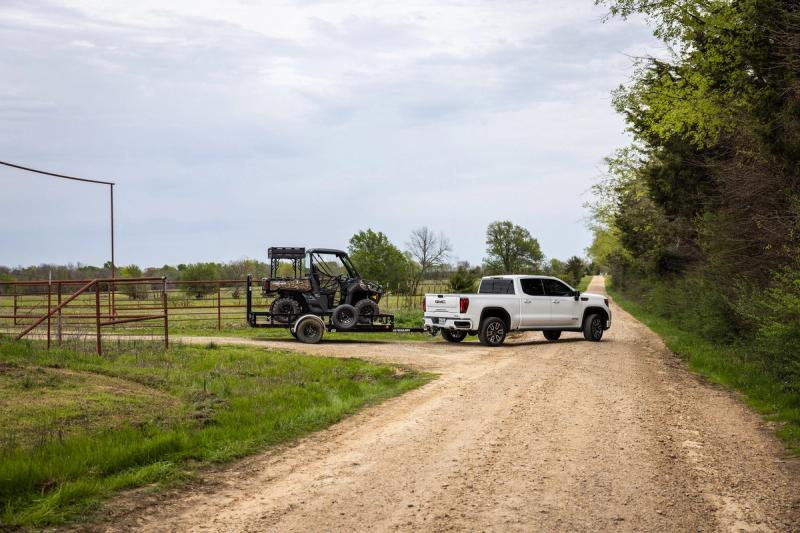
What can my vehicle tow?
When you’re looking to haul something, first you need to see if your vehicle is up to the task. For this, you should start by checking the vehicle’s Gross Vehicle Weight Rating (GVWR). That’s the maximum amount of weight that your vehicle can handle safely. The rating can typically be found on the placard attached to the driver’s side door.
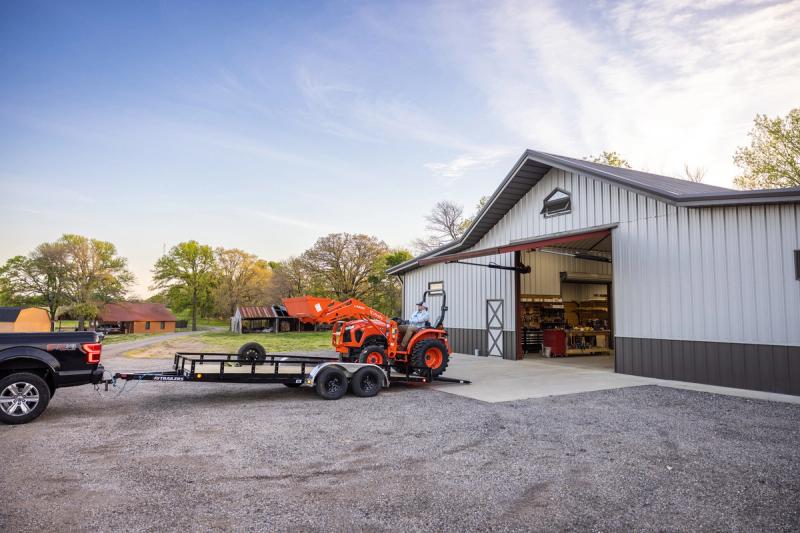
A trailer also has its own GVWR, so you’ll need to have an idea of the weight range of what you’re planning to haul.
This will also factor into how many axles your trailer has, as the GVWR is typically calculated by how much weight can be put on a single axle.
Where the trailer and the vehicle meet, of course, is the tongue and the hitch. That’s why, lastly, you’ll need to confirm that the tongue weight of the trailer fits within the GVWR and payload capacity of the trailer.
To get started, you can use the helpful Towing Calculator on the PJ Trailers website.
How am I getting the cargo onto the trailer?
The actual transporting of the load between two locations is usually the easy part—it’s the loading and unloading that requires effort. To that end, you’ll want to consider if you need ramps to complete the task, and if so, what kind would work best for you?
You could also consider a tilt deck trailer, which maximizes space and also typically has a shallower incline angle.
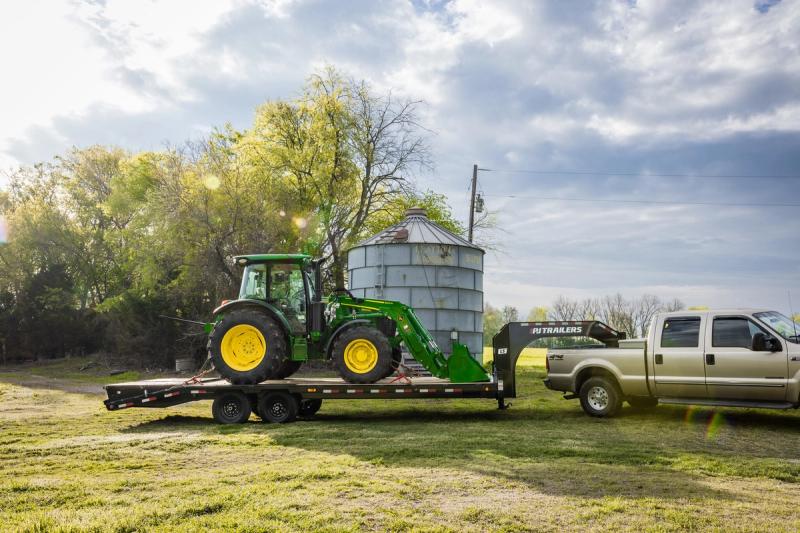
How can I customize my trailer to get all the details right?
Like any car or truck you buy, there are all kinds of customizable options such as upholstery or technology. With trailers, the same is true, but here the name of the game is function.
Do you need a high-sided trailer to keep equipment in?
Do you need a deck-over trailer to give you more space?
Do you need a dump trailer because you’ll be hauling material that you need to offload quickly?
All of these and more are excellent questions to ask when you’re thinking about what kind of trailer you want and what features are important to your task.
When it comes down to the details, you’ll likely have a list of add-on features you can spec. PJ Trailers, for example, has a wide range of accessories, including tie-down loops, light bars, hitch adapters, ramps, tarps, tire mounts, and much more.
Is service and support important to me?
Unfortunately, service and support isn’t always a guarantee when you buy a piece of equipment. If you’re cutting corners on price, you’ll likely find that when you tow the trailer away from the dealer, you’re on your own. That might be acceptable for some, but customer service can add valuable peace of mind.
Especially for a piece of equipment like a trailer that experiences wear and tear, you can avoid a lot of headache when you have access to a warranty program or replacement parts, if needed. You never know what will happen, so you’ll want to seriously consider a trailer that’s backed by the manufacturer.
When you visit a reputable trailer dealer, be sure to consult with them on the options they have available and what would be best for your tasks.
In the end, it’s not about power and muscle, it’s about fit and function. And if you haven’t researched trailers recently, you may be surprised at the options and customizability. All that’s left at that point is to zero in on the right trailer, make the decision, and then put it to work.
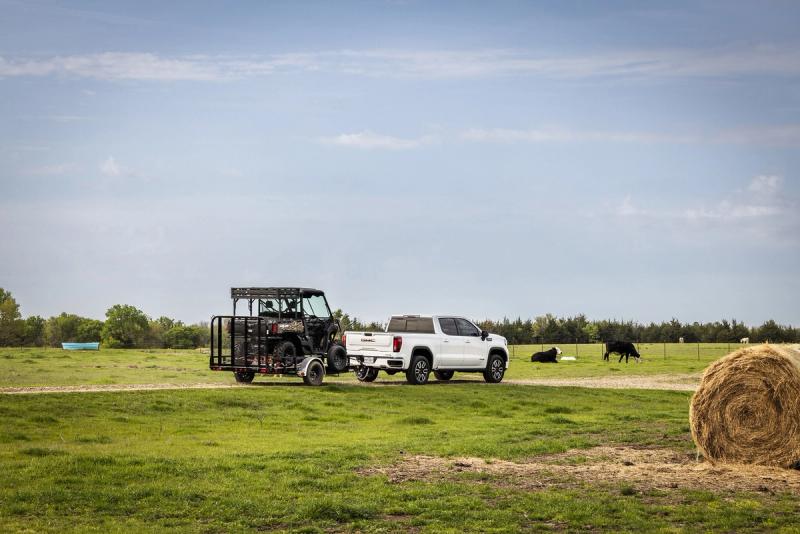
Thanks to PJ Trailers for supplying information for this article.
Tags:Tool Time

Acreage Life is part of the Catalyst Communications Network publication family.
















